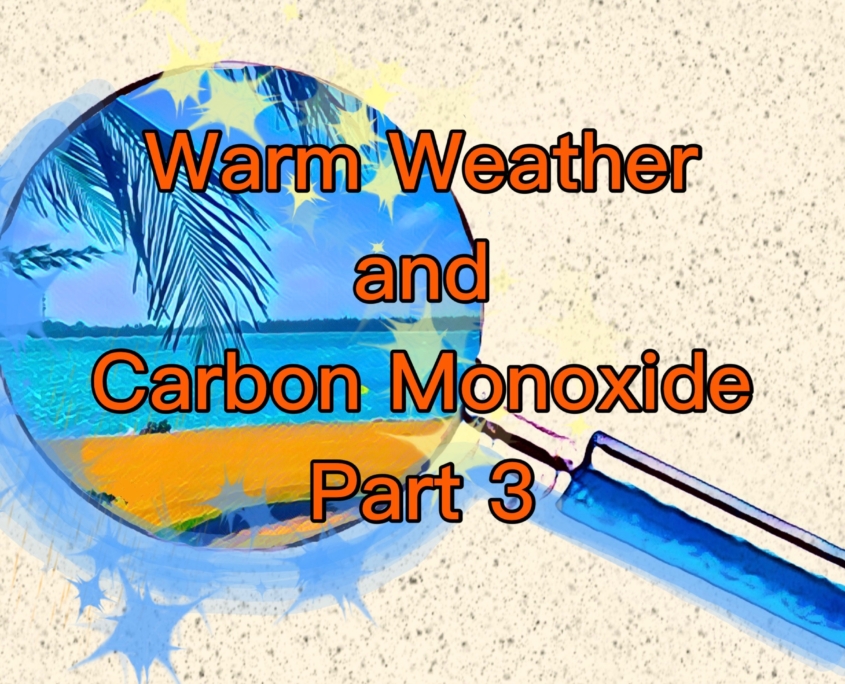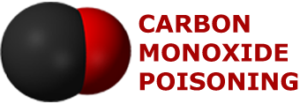Sandals Resort Vacation Deaths Still Mystery
Vacation deaths continue to happen because hotels and resorts do not exercise due care with respect to carbon monoxide poisoning.
By Rebecca Martin
The approaching summer is a time to make vacation plans for many Americans not vacation deaths, like what happened at the Sandals Resort in the Bahamas. Whether it’s planning for the weekend or a full blown family vacation, Americans love recreation. According to the Outdoor Participation Report, 2017 https://outdoorindustry.org/wp-content/uploads/2017/05/2017-Outdoor-Recreation-Participation-Report_FINAL.pdf almost 50% of Americans participate in some outdoor activity.

The tragedy of vacation deaths continues to happen because resorts and hotels don’t take due care with respect to protecting patrons from carbon monoxide poisoning.
While the majority enjoy activities such as running, biking, hiking and fishing, numerous families hit the road in RVs or engage in tent camping. Around a 100 million Americans take the water to enjoy boating activities, an activity that has actually grown in response to Covid. Millions will trust that their well being is being cared for by professional hotel and resort management. Instead, too many wind up vacation deaths statistics. Carbon monoxide continues to cause vacation deaths.
https://www.businesswire.com/news/home/20210609005162/en/Recreational-Boating-Boom-Continues-as-Americans-Turn-to-the-Water-in-the-Wake-of-COVID-19-Pandemic In 2021, surveys revealed that four in ten Americans had summer travel plans which involved staying in some type of lodging, either domestically or abroad.
The Nightmare of Vacation Deaths versus Cherished Memories
Whatever summer activities one decides to embark upon, no one ever imagines that a highly anticipated getaway will end in tragedy due to carbon monoxide poisoning. I have said many times that the risk of danger from carbon monoxide exposure exists any time there are fuel burning devices present. No matter how well one has paid attention to carbon monoxide safety in their own home, there are dangers that exist beyond the front door and those dangers claim lives every year. Whether it’s taking to the water for a day of recreation or booking a resort vacation, there are carbon monoxide safety issues which can turn time off into time over.
Tragedy at Sandals Bahamas
A recent story about three vacation deaths at a Sandals Resort in the Bahamas brings home the reality of vacations gone bad. What is described as “an unknown health emergency” which is still under investigation as autopsy reports are pending began as hotel guests complained of insecticide type odors. Though according to a Fox News story these claims may have been tied to a 2015 incident in a luxury resort in the U.S. Virgin Islands in which a banned pesticide was discovered to be the culprit. https://www.foxnews.com/world/sandals-bahamas-deaths-americans-insecticide-report The three American victims who perished in the Bahamas had sought medical treatment the night before their deaths at separate times. Intake interviews had been done to determine where they had eaten and their activities leading up to seeking out medical help. The two couples were eventually released to return to the resort where three of them died and one was hospitalized in serious condition.
“Austin Chiarella told ABC News his parents were celebrating their anniversary in the Bahamas when they fell ill. He told the outlet his mother was released from a clinic Thursday night and later woke to find her husband on the floor.” https://www.usatoday.com/story/news/nation/2022/05/09/bahamas-sandals-resort-deaths-what-we-know/9701140002/
The second couple, Michael Phillips and his wife Robbie Phillips, from Tennessee, were found deceased the morning following their trip to the hospital. They were both travel agents who were described as “gushing” about the resort prior to their deaths and had vast experience with the Jamaican owned Sandals Resorts. Sandals Emerald Bay is located in Great Exuma, Bahamas and was purchased by Sandals Resorts International in 2009, and subsequently launched in 2010 as an all-inclusive resort for couples.
Consumer Affairs maintains a updated page for Sandals resort rankings and reviews at https://www.consumeraffairs.com/weddings/sandals.html Reading through the reviews reminds me of The White Lotus, a satirical comedy-drama currently on HBO in which online bookings and virtual tours may or may not be representative of reality. But, what does stand out is a recurring theme in some lodging establishments to continue to house patrons in units in spite of health complaints. In this case, the two couples had sought medical attention without a definitive cause being found to explain their illnesses and then were returned to the same units without any suspicion that perhaps there was a problem with the units themselves.
Though the investigation is ongoing: Earlier reports had mentioned that numerous guests had felt nauseous or had other symptoms that might indicate some type of environmental problems. It wasn’t until three guests were found deceased in their rooms that this possibility came under investigation. It’s a story worth following to find out what the exact cause of death was.
Vacation Deaths – A Recurring Story
I have covered several instances in lodging facilities where guests became ill, were hospitalized and in some cases, died, due to faulty equipment including pool heaters, boilers and water heaters. https://carbonmonoxide.com/2022/03/lakeland-sleep-inn-carbon-monoxide.html In the case of the Boone County Best Western in North Carolina, because the initial cause of the first fatalities was not addressed, the room in which they died took an additional victim when it was again opened to the public. https://carbonmonoxide.com/2020/09/boone-best-western-carbon-monoxide-poisoning-story-the-rest-of-the-story.html
Boating and Carbon Monoxide Poisoning
Another aspect of recreation which has proven deadly over the years is boating. Unknowingly many people believe that carbon monoxide is not a danger in the open air. But after much major research and reopening many accidental drowning cases, we know that carbon monoxide buildup under swim platforms and in the backs of slow moving boats has been the culprit for decades. https://carbonmonoxide.com/2021/09/carbon-monoxide-poisoning-while-boating.html One important fact about carbon monoxide is that it can build up to a toxic, lethal level extremely quickly and affect judgement and mobility even quicker. On the water this can have deadly implications.
Carbon monoxide responds to atmospheric conditions in very dangerous ways with air flow and back drafts sometimes resulting in deadly concentrations. Any time fuel burning devices are present it is important that they are maintained, used per manufacturers’ instruction and used for the function for which they are intended. So whether you are spending the week in an RV, camping in the horse trailer for a weekend horse show or hunkering down in a tent for a weekend of roughing it…all fuel burning components should be properly utilized and functioning properly.
“CO is a gas produced by generators, portable heaters, gas stoves and other devices that is dangerous and potentially deadly if inhaled. In 2011, five Tennesseans were killed after the recreational vehicle they rented filled with carbon monoxide from a nearby generator.
In campers and RVs, items that emit carbon monoxide include built-in or portable generators, gas-powered heaters, gas ranges or ovens, portable camp stoves and gas water heaters. The carbon monoxide emitted can build up in enclosed, semi-enclosed or poorly-ventilated spaces, poisoning people and animals who breathe it. On boats, gasoline-powered engines including onboard generators produce carbon monoxide. This can be dangerous to people swimming underneath rear swim platforms where CO can accumulate.” https://www.tn.gov/health/news/2018/8/6/prevent-carbon-monoxide-poisoning-during-summer-recreation.html
The Tennessee government page also offers these tips for summer safety:
- Inspect the RV’s generator exhaust system regularly, at least before each outing.
- Test the vehicle’s carbon monoxide detector every time you use an RV.
- When the RV is parked, be aware of other nearby vehicles that may be using generators. When parking, make sure exhaust gases can easily blow away from the vehicle.
- Never use a gas generator inside a home, garage, carport, basement, crawlspace, tent or camper or less than 20 feet from any window, door or vent.
- Never use a gas range or oven for heating. This can cause a build-up of CO inside the camper, cabin or home.
- Never use a portable gas camp stove indoors.
- Never burn charcoal indoors.
Whatever your destination for summer recreation, if it involves potential exposure to a fuel burning device, a battery-operated carbon monoxide detector should be part of your essential arsenal. Checking into lodging is no exception. Marine carbon monoxide detectors are a must-have for boat operators. Vacation planning should include the question of safety and a carbon monoxide detector is the most inexpensive insurance policy you can buy.
Prayers to the families of the Philips and Chiarellas during this difficult time.

Leave a Reply
Want to join the discussion?Feel free to contribute!